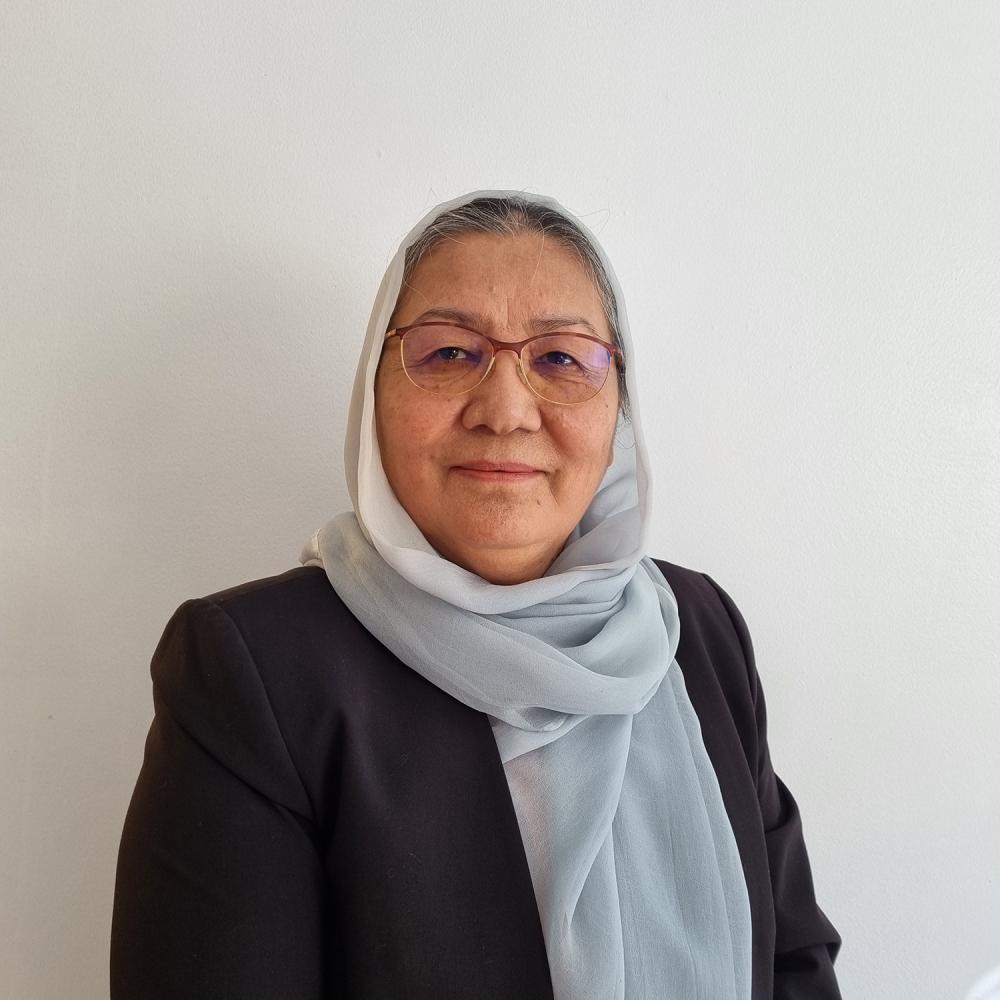Over the past four decades, Afghanistan has endured relentless violence and authoritarian rule, with the Taliban's return to power in 2021 creating a context where conventional political avenues for change have been severely constrained. Yet, across Afghanistan, diverse forms of non-violent resistance continue to emerge, from everyday acts of political defiance to organized collective action, digital activism, and community-based reconciliation efforts. These resistance practices not only challenge the Taliban's authority but also advance spaces for dialogue, preserve social cohesion, and potentially create foundations for future peace and reconciliation processes.
Despite the significance of these developments, the broader ecosystem of non-violent action in Afghanistan remains undertheorized. Current theoretical models inadequately capture the distinctive dynamics created by the Taliban's particular blend of ethno-religious legitimation, territorial control, and lack of domestic and international legitimacy. There is an urgent need for scholarly examination that can bridge the gap between resistance practices and pathways to sustainable peace.
This conference explores how non-violent resistance operates under Taliban rule and examines its potential contributions to peaceful social transformation and eventual reconciliation. The event brings together scholars and practitioners to analyze diverse manifestations of resistance, including women's activism, digital campaigns, educational networks, healthcare initiatives, legal pluralism, and community reconciliation efforts, while developing theoretical frameworks that can better account for their dynamics, motivations, and peace potential.
The insights generated during these discussions will inform future research and policy recommendations for supporting non-violent pathways to justice and reconciliation in Afghanistan. By centering Afghan perspectives and examining resistance through the lens of peacebuilding, this conference contributes to a deeper understanding of how civil society actors engage in preparatory work for eventual transitional justice processes, even under conditions of severe authoritarian repression.
Speakers

Anh N. Pham is the Director of International Programs at the Central Asia Institute, where she leads education, livelihoods, and women's empowerment programs in Afghanistan, Pakistan, and Tajikistan. With 18 years of experience in strategic planning and program management across Africa and Asia, Ms. Pham is a former development diplomat and career Foreign Service Officer with USAID. She has served in Uzbekistan, Liberia, Cambodia, South Sudan, Timor-Leste, Afghanistan, and Kazakhstan, leading multimillion-dollar portfolios in education, youth workforce development, health, and governance with a focus on equity and inclusion. Prior to USAID, she worked in the nonprofit and public sectors in health education, patient advocacy, and higher education capacity development.

Ambassador Adela Raz is a prominent leader in international affairs. She served as the last Ambassador of the Islamic Republic of Afghanistan to the United States, representing her country during a period of profound transition.
Previously, she was Afghanistan’s first female Ambassador and Permanent Representative to the United Nations, where she played a global leadership role. She served as Vice President of the 75th UN General Assembly and was appointed by its President to co-coordinate COVID-19-related initiatives, helping shape the international response to the pandemic.
Before her U.N. appointment, Ambassador Raz was Deputy Foreign Minister of Afghanistan, leading regional and economic cooperation portfolios. She spearheaded initiatives such as the Regional Economic Cooperation Conferences on Afghanistan and the Heart of Asia–Istanbul Process. She also led Afghanistan’s negotiations for the Brussels (2016) and Geneva (2018) Donor Conferences, securing crucial international development commitments.

Dr. Ches Thurber is an Associate Professor of Political Science at Northern Illinois University. His scholarship examines international security with a focus on civil conflicts and nonviolent resistance movements. He is the author of Between Mao and Gandhi: the Social Roots of Civil Resistance. His work has been published in International Studies Quarterly, the Journal of Peace Research, Perspectives on Politics, and other peer-reviewed journals. He previously held research fellowships at the Harvard Kennedy School, the University of Chicago, and the University of Denver’s Korbel School. He received his Ph.D. from The Fletcher School of Law and Diplomacy at Tufts University and his B.A. from Middlebury College.

Ms. Sarabi is an Affiliate at the Afghanistan Policy Lab, Princeton School of Public and International Affairs, and former member of the Islamic Republic of Afghanistan's Peace Negotiating Team. She is a politician, and reformer in Afghanistan's reconstruction. She made history as the first Afghan woman to become a provincial governor when appointed in 2005 to lead Bamyan Province. Sarabi also served as Minister of Women's Affairs and was an activist for women's rights and education during the Taliban era. In the 2014 presidential elections, she ran as vice president alongside Dr. Zalmai Rasul. As an advisor to Dr. Abdullah Abdullah, she focused on women and youth issues within the National Unity Government. Recognized for her efforts, she received the Ramon Magsaysay Award in 2013 and the N-Peace Prize in 2016. She was a member of the Government negotiation team with the Taliban, working to bring peace while advocating for gender equality and women's empowerment.

Ms. Ebtikar works at the intersection of socio-political memory and history, in Central Asia and the Middle East more broadly. She is currently a Peace Fellow at the Afghanistan Policy Lab at Princeton’s School of Public and International Affairs, specializing in peace, healing, and reconciliation.
Munazza’s research interests include questions related to the politics of history and memory, ethnography, nationalism, conflict resolution, and post-conflict reconstruction. Her work has been published in various journals and public platforms. She received the Azizeh Sheibani Prize from Oxford's Middle East Centre and has been recognized with multiple awards, including the John F. Richards Research Fellowship (which she was awarded three times), as well as support from the British Council and the James Mew Arabic Scholarship.
Munazza is completing her PhD at St John's College, University of Oxford, with a research focus on the politics of memory in wartime Afghanistan. She holds a Master of Philosophy with an emphasis on Political Philosophy from the University of Oxford and three bachelor's degrees from the University of California at Berkeley in Politics of the Middle East, Peace and Conflict Resolution, and Near Eastern Studies with a concentration in Persian Literature.

Mr. Sadr is a political scientist with over a decade of experience in academia and think tanks. He is a research associate at the University of Pittsburgh and the founding editor-in-chief and host of Negotiating Ideas, an online magazine and podcast on democracy and pluralism. He is also a non-resident fellow at Princeton University's Afghanistan Policy Lab, where is focuses on civil resistance against the Taliban regime. Previously, he worked as an assistant professor of political science at the American University of Afghanistan (AUAF).
His primary research interests include the political theory of pluralism, governance, human rights, civil resistance, and political Islam. Dr. Sadr has made significant contributions to his field. His book, Negotiating Cultural Diversity in Afghanistan, which won a 2022 book prize for Best Book in Social Science from the Central Eurasian Studies Society, examines the challenges to peaceful coexistence in a pluralistic society and develops a political theory of governance of diversity. Dr. Sadr holds a Ph.D. (2018) from South Asian University (SAU), a university established by the SAARC nations. His current research examines the contestation between liberalism, Islamism, and customary values in the third republic of Afghanistan (2001-2021) and investigates authority, legitimacy, and resistance under Taliban rule.

Dr. Balkhi, Affiliate at the Afghanistan Policy Lab; Fellow at the Wilson Center; Former Minister of Education (2018–2020)
Mirwais Balkhi is a scholar and former Minister of Education (2018–2020). He is currently affiliated with the Afghanistan Policy Lab at Princeton University and James Madison University. Balkhi was also a fellow at the Wilson Center in Washington, D.C.. He holds a Ph.D. in International Relations from Jawaharlal Nehru University, India, and has authored several books on regional politics and international relations. He has lectured at universities across Afghanistan and abroad, and served as Chief Editor of the Quarterly Journal of Diplomacy & International Studies.

Ms. Elmi is a Research Fellow at RWI supporting the mandate of UNSR on the situation of human rights in Afghanistan. She recently served as a Professional Specialist at the Afghanistan Policy Lab at Princeton University. Nazeela holds a Master’s degree in Human Rights Studies from Columbia University. Previously, she worked with the Centre for Information Resilience – Afghan Witness, conducting open-source investigations and human rights monitoring, with a particular focus on the surge in women’s suicides and honor killings. Nazeela has contributed to global policy discussions, engaging with high-level experts on Afghanistan’s evolving political and humanitarian landscape. Her scholarship critically analyzes the status of human rights and the situation of women under the Taliban rule. Her research interrogates dominant narratives and explores gender issues through an intersectional lens, with particular attention to women’s resistance movements, the gendered impact of forced displacement, and youth engagement in peace and justice initiatives. Nazeela was one of the ten Rapporteurs who drafted the outcome document of the 12th UNESCO Youth Forum.

Ms. Rayed is a non-resident fellow at the Afghanistan Policy Lab at Princeton University's School of Public and International Affairs, where she conducts policy research on sustainable peace, institution building, and civic participation in Afghanistan.
As a Fulbright scholar, Maryam earned a Master’s degree in Governance and Democracy from Georgetown University, focusing on institution building at the intersection of gender, post-conflict intervention, and governance reforms, with a particular emphasis on local governance. She also holds a Master’s degree in Gender and Women’s Studies and a Bachelor’s degree in Sociology and Political Philosophy from Kabul University. Her academic journey includes an Erasmus fellowship, during which she studied at Opole University in Poland and Heidelberg University in Germany.

Mr. Azizi earned his M.A. in Global Affairs and Politics from Rutgers University as a Fulbright Scholar. He has worked with the United Nations Development Program (UNDP), contributing to democratic governance and state-building efforts in Afghanistan. His expertise includes election management, public administration reform, and women’s empowerment.
Currently, he serves as a lecturer for the American National Government course and is pursuing a Ph.D. at Rutgers, with a research focus on institutional reform within state institutions.

Ms. Mariam is a researcher, journalist, and poet. She holds a bachelor’s degree in Journalism and a master’s degree in Social Sciences from Humboldt University of Berlin. She is currently a Research Fellow at the Institute for Communication and Media Studies at Leipzig University. Her current project investigates how women’s protests have been portrayed on social media since the Taliban’s return to power in Afghanistan. Previously, she worked as a Persian literary curator for Deutsche Welle and the Beethovenfest in Bonn.

Dr. Abid is a Postdoctoral Research Fellow at the University of Melbourne and an Afghan–Australian scholar of modern Afghan history, peace studies, and political theory. His research foregrounds critical traditions rooted in the Global South, including postcolonial studies and decolonial thought, alongside Islamic and other traditional knowledge perspectives. One of his current projects, The Longest War: Australian Encounters with Afghanistan, 2001 to Today, examines the social and cultural dimensions of post-2001 Australian involvement in the “war on terror” and statebuilding in Afghanistan. He is the author of the forthcoming book Resurgent Histories of Afghanistan (Routledge, 2026).

Mr. Rahim is a development practitioner, data analyst and founder of Majid Zabuli Center for Economic Research and Policy Analysis. He has remained a regular contributor on economic issues of Afghanistan with a focus on private sector development, trade and regional political economy through his op- eds, papers and policy briefs. He has worked as Director General for Strengthening of Financial Sector at Da Afghanistan Bank (Central Bank) where he managed the World Bank funded reform projects for digitization, streamlining and efficiency of the banking sector. He was part of the technical team that negotiated the Afghanistan Pakistan Transit Trade Agreement (APTTA) with Pakistan in 2021. He remains engaged in Afghanistan through his development work and is currently implementing UN funded projects to support women led Micro, Small and Medium Enterprises (MSMEs) in different provinces of Afghanistan. Rahim holds an MBA degree from Institute of Management Sciences of Pakistan and an MSc. Degree in Development Economics from University of Sussex, England and is a Chevening alumnus.
Sponsorship of an event does not constitute institutional endorsement of external speakers or views presented.

